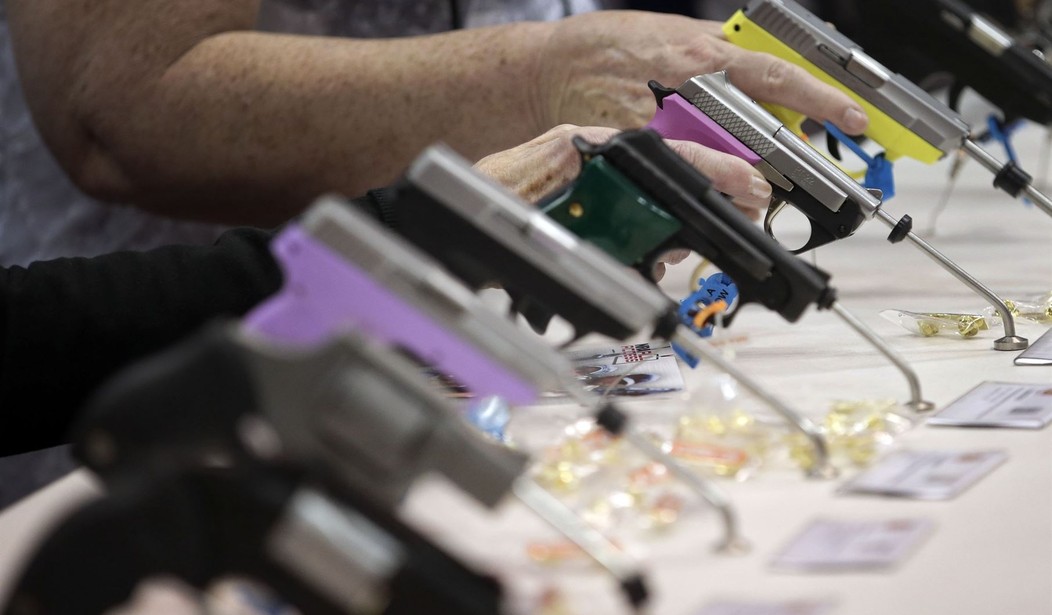Back in 2008, the city of Philadelphia put a local ordinance on the books requiring all gun owners who lose or have their firearms stolen to report the loss to police within 48 hours or else face criminal charges themselves. These “lost or stolen” ordinances are popular among gun control activists, who claim that the measures can prevent straw purchases of guns (though I’ve never heard a good explanation of how exactly they’re supposed to do that), but they’re largely unenforceable.
In fact, the first time that Philadelphia enforced its lost or stolen law was 2019, more than ten years after it took effect. A defendant who’d admitted to engaging in six straw purchases (a criminal offense in its own right) was also charged with violating Philly’s local ordinance; a charge that was thrown out on Monday by the Pennsylvania Commonwealth Court after a three-judge panel unanimously declared the local ordinance violates the state’s firearm preemption law.
“The city is disappointed with the Commonwealth Court’s decision today as we maintain that our lost and stolen ordinance is legal. We agree with [Senior Judge Bonnie Brigance Leadbetter] that this case is ripe for the Supreme Court’s review given the plain language of the law; we plan to appeal this ruling,” city spokesperson Kevin Lessard said.
“The decision released today by the Commonwealth Court concerning the city’s lost or stolen handgun reporting ordinance was not unexpected. We always expected we would be arguing the case for Philadelphia’s right to enact and enforce its own lost or stolen gun law in the state Supreme Court, and that’s where this case is now headed,” City Council President Darrell Clarke said.
Philadelphia District Attorney Larry Krasner supports the city’s position on the reporting law, said Jane Roh, his spokesperson.
A three-judge panel ruled unanimously against the city law and issued a permanent injunction, saying the state Uniform Firearms Act preempts it.
While the panel unanimously ruled against the city, at least one of the judge’s seems to be rooting for the Pennsylvania Supreme Court to overturn their decision.
Judge Leadbetter urged the Pennsylvania Supreme Court to reconsider that 1996 legal standard and to allow local restrictions “narrowly tailored to local necessities.”
“The overwhelming blight of gun violence occurring in the City of Philadelphia, of which I believe we can take judicial notice, and the policy issues argued by the city in the case before us, call for a recognition that local conditions may well justify more severe restrictions than are necessary statewide,” Leadbetter wrote.
She said it violates the fundamental right to life and liberty when children can’t walk on a street near their homes without the risk of being shot.
“It is neither just to impose unnecessarily harsh limits in communities where they are not required nor consistent with simple humanity to deny basic safety regulations to citizens who desperately need them,” Leadbetter wrote. She and both of the other judges who heard the appeal, Patricia McCullough and Anne Covey, were elected as Republicans.
Philadelphia’s lost-or-stolen ordinance isn’t a basic safety regulation, and it isn’t desperately needed. As I mentioned, the ordinance was on the books for more than a decade before the city finally found an opportunity to try to enforce it, and even then, the $2,000 fine delivered as punishment was less severe than the penalty for engaging in a straw purchase.
But this fight is about more than this specific law. Philadelphia officials, along with their allies in the gun control lobby, are hoping that the state Supreme Court will throw out the state’s firearm preemption law entirely, allowing cities from Philadelphia to Pittsburgh to enact their own gun control restrictions that go far beyond what is found in state statutes.
If the city’s lost-or-stolen ordinance is ultimately upheld, or the state Supreme Court overturns the existing preemption law, Philadelphia politicians wouldn’t stop with this one local law. They would quickly move to impose a whole host of new restrictions on gun owners, from gun and magazine bans to imposing waiting periods on gun purchases. If you want an idea of their wish list just look at what the city council in Boulder, Colorado is now considering after Democrats repealed that state’s firearm preemption law last year.
In its Tuesday study session, the City Council offered direction on a legislation package that, if approved in a future public hearing, would do everything from prohibiting open carry and carrying in sensitive areas to requiring a 10-day waiting period after the initiation of a background check for a licensed firearms dealer to deliver a firearm to a purchaser.
Prohibitions on open carry and carrying in sensitive areas, which include city buildings, public parks and playgrounds, hospitals and more, all would have exceptions such as for law enforcement, the armed forces on official duty and security guards.
The city also is looking to reinstate its ban on assault weapons, large-capacity magazines — those holding more than 10 rounds — and trigger activators, also known as bump stocks, which allow a gun to fire faster.
… In addition to the aforementioned measures, the city also would raise the legal age of purchase to 21 and ban guns that have not been identified with a serial number by a federal licensee. While the city already prohibits people from purchasing guns until they’re 21, it intends to repeal its current ordinance and rework it to avoid preemption.
Mayor Jim Kenney and many Philadelphia city council members would love to put similar ordinances in place in Philadelphia, and the one thing that’s stopping them is Pennsylvania’s firearm preemption law. That should be the case even after the state Supreme Court weighs in, and rightfully so. Philadelphia’s violent crime isn’t going to be solved or even checked by turning aspects of Second Amendment rights into misdemeanor criminal offenses, which would only serve to increase the power of elected officials at the expense of our individual rights.









Join the conversation as a VIP Member